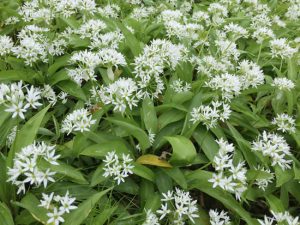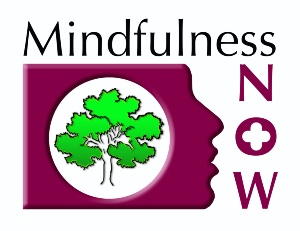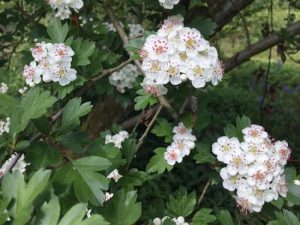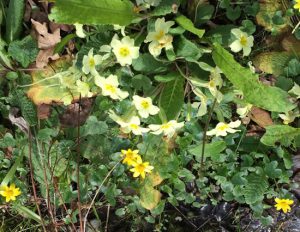Extraordinary times
Right now the vast majority are experiencing far more challenging times than usual. How people cope with the unfolding virus crisis can alter many times throughout the day, with the experience of being on an emotional roller-coaster being a fairly common experience.
Frequent and changing emotional mood swings can be mentally exhausting and we need to recognise that this experience is one many will share during these extraordinary times.

Check in before your mind does it for you
Being able to check in to ‘notice’ what’s happening ‘in’ yourself can be really helpful for lowering anxiety, as and when such waves occur. Using mindfulness to cultivate this ability to observe what’s happening, rather than getting caught up in an anxiety moment, can be quite empowering in lowering stress levels through putting a brake on habitual thought patterns dominating your perspective.
Mindfulness, practised regularly, can help you to put a little bit of distance between you and your thoughts, giving you more of a choice in how to react to them. To be able to bring conscious awareness to “Ah, that’s what I’m thinking is it” and “what’s happening in my body as a result of what I’m thinking about” can help inform wiser choices on “what do I need to do that’s right for me at this moment in time?”
What you “need to do right now” is to lower your suffering. Cultivating a mindful perspective provides you with opportunity to consider rather than instantly react to stressors. This provides you with a ‘gap’ to consider options and hopefully the ‘wisest’ solution to lower your suffering.

Gaining wisdom
The ‘wise’ choice you make in response to stress is not so much about taking away the suffering, but changing your perspective on how it can be dealt with.
A wise choice could be to leave the room, to avoid a confrontation. A wise choice could be to make a cup of tea rather than reach for the bottle of wine. Wise choices are those that are most likely to impact positively on our wellbeing, rather than potentially being detrimental.
So, for example, reaching for a drink in times of stress is fine, so long as it doesn’t become a habit that your mind craves for and will not be satisfied with anything else to diffuse stressors.
I’m not going to pretend for one moment that I haven’t reached for the wine bottle on many an occasion when I was a carer for a seriously ill relative who was living with me. However, it depends how often you are experiencing levels of stress/anxiety that make you want to reach for the wine bottle that can cause an issue.
The mind is very powerful at establishing habits of thinking, making you ‘think’ you need a particular something to lower stress and ease suffering. The mind creates a habit, the habit needs to be fed and when it’s not fed you experience cravings and then more suffering if that craving cannot be satisfied. Does that strike a chord at all?
Practising mindfulness can help you notice and recognise what are just habitual thinking patterns in response to a stressor. Mindfulness can help you gently lower your stress response so that you can make wiser choices on how to respond to the ‘demands’ of your mind.
Build your emotional resilience
Immerse yourself in mindfulness activities, designed to be engaging, restorative and fun.
Cultivating gratitude
This suggestion of cultivating gratitude in the midst of a world health crisis may seem rather ‘pollyannish’, but bear with me on this. Gratitude is a “positive emotional state” and we could all benefit from cultivating some of that right now.
Scientific research shows that actually making time to notice things to feel grateful about can benefit our wellbeing, effecting a more positive state of mind, generally. It’s hard to feel positive when there’s so much anxiety all around associated with the current lock-down, but we have to deal with it and so we’d be wise to learn to cultivate feelings of gratitude in whatever small ways we can.
Consider the bigger picture
Cultivating gratitude holds the power to both re-energise and heal.
Gratitude can be cultivated by learning to look outside of ourselves, rather than in the mental states created by habitual thought patterns, which are not facts even if our minds tell us that is so!
Gratitude can be cultivated by taking time to notice simple things that affirm there are good things in life to be savoured and appreciated. Noticing good things in life could be as simple as bringing more conscious attention to what’s going on outside in your garden, in the sky above, or in noticing the needs of others and responding, as best you can.

Mindfulness practice cultivates gratitude
Practising mindfulness can help in the cultivation of feeling more gratitude, through gently training the brain to develop new neural pathways (ways of thinking) that respond to negative thoughts and emotions in more positive ways. This development of new perspectives can help reduce suffering through enabling greater focus on life’s positives and less on the negatives.
Using mindfulness training for the brain should be considered just as valuable for cultivating wellbeing as visits to the gym to exercise the body.
Join in a mindfulness session
If you’d like to try out some mindfulness practice I’d be happy to have a chat with you to see if we feel some sessions would be helpful. Just complete the short form below and I’ll get back to you. No previous mindfulness experience required.
Start a conversation

Susan Collini
An accredited Mindfulness Now teacher, Susan likes to teach sessions outdoors whenever possible. However, with the current life restrictions mindfulness sessions will be delivered through online video-link using Zoom, Skype or FaceTime.










